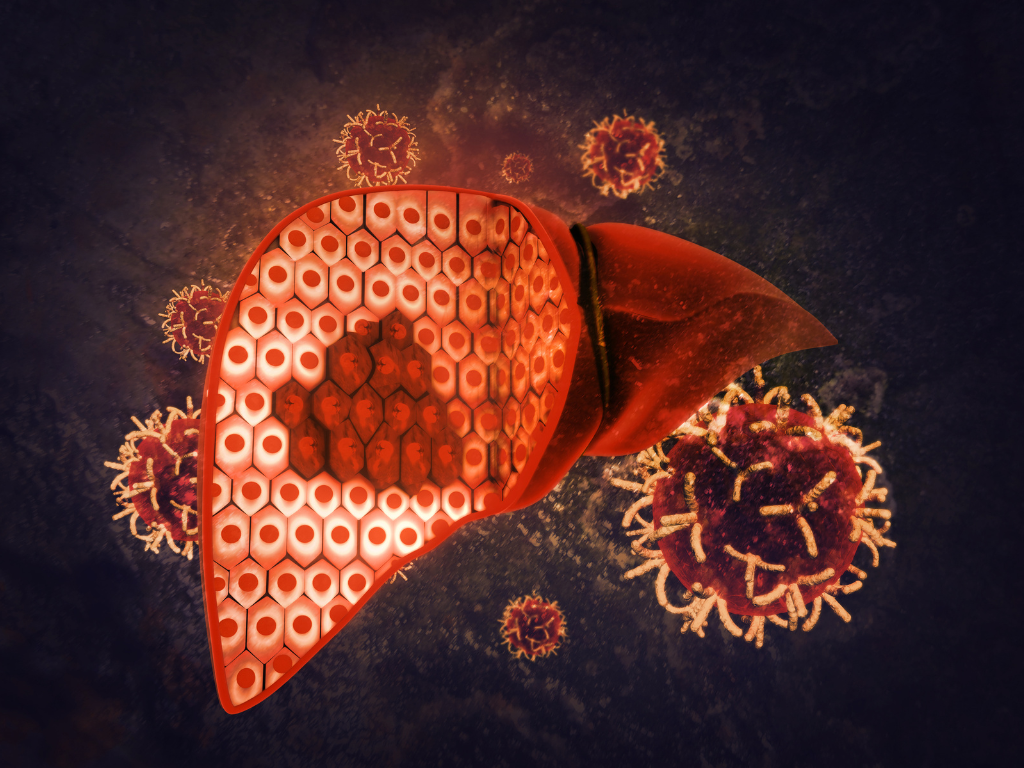What is Cholangiocarcinoma?
Cholangiocarcinoma (CCA), is a cancer involving uncontrolled growth of the bile ducts, the part of the liver that drains bile into the intestine. CCA are rare tumours comprising approximately 3% of gastrointestinal tumours and have an overall incidence of less than 6 in 100,000 people globally.1
What are the risks of getting Cholangiocarcinoma?
The incidence is rising worldwide and in certain countries such as the North East of Thailand and neighbouring Laos. CCA is widespread in these regions due to liver fluke infections. Other risk factors include chronic biliary and liver diseases, and lifestyle-related aspects causing chronic inflammation. Cholestasis in the liver (decrease in bile flow) has also been linked to the development of CCA. Patients diagnosed with advanced CCA have a dismal prognosis as the disease is considered incurable, with a 5-year survival rate of 5%.
Symptoms
Symptoms of CCA include painless jaundice, weight loss, itchy skin and abdominal pain and they usually appear in advanced disease. In many cases, patients with CCA are asymptomatic, and the disease is found during a routine examination.2 Because no tests are available that allow these tumors to be detected early, an early diagnosis of CCA can be very challenging.3
Detection and Diagnosis
Cholangiocarcinoma occurs mostly in people older than age 50, though it can occur at any age. A physical examination is done to look for signs of CCA or other health problems. If CCA is suspected, the examination will focus mostly on the abdomen (belly) to check for any masses, tenderness, or build-up of fluid. The skin and the white part of the eyes will be checked for jaundice (a yellowish color).
If symptoms and/or the results of the physical exam suggest CCA, further tests will be done. These could include blood tests (to check liver function), biopsy and imaging tests (CT scans and/or MRI scans and other procedures).
Treatment Options
CCA treatment combines different approaches. Where possible, surgical resection is performed with curative intent and chemotherapy is often required after surgery to reduce the chance of relapse.3
In more advanced stages of CCA, chemotherapy, immunotherapy and targeted therapies are often used for treatment.
A multidisciplinary team including gastroenterologists, surgeons and medical and radiation oncology specialists is required for diagnosing, treating and monitoring CCA.
Importance of Patient Education
CCA is often diagnosed after the disease has progressed significantly. Patient education about this cancer is therefore important to ensure that signs and symptoms, when present, are recognized as soon as possible. With an early diagnosis, a specialized medical team is able to determine the best course of action.
When to see a doctor
See your doctor if you have persistent fatigue, abdominal pain, jaundice, or other signs and symptoms that bother you.
This article is contributed by Dr Choo Su Pin, a senior medical oncologist at Curie Oncology who specializes in gastrointestinal cancers. We acknowledge Specialised Therapeutics for supporting and facilitating this article.
References
- Banales, J.M.; Cardinale, V.; Carpino, G L. et al. Expert consensus document: Cholangiocarcinoma: Current knowledge and future perspectives consensus statement from the European Net-work for the Study of Cholangiocarcinoma (ENS-CCA). Nat. Rev. Gastroenterol. Hepatol. 2016, 13, 261–280.
- Rizvi S, Gores GJ. Pathogenesis, diagnosis, and management of cholangiocarcinoma. Gastroenterology. 2013;145(6):1215-1229.
- Doherty B, Nambudiri VE, Palmer WC. Update on the diagnosis and treatment of cholangiocarcinoma. Curr Gastroenterol Rep. 2017;19(1):2.






